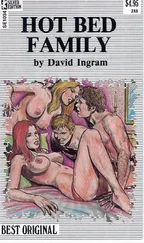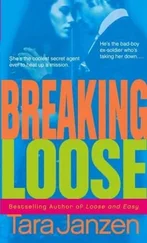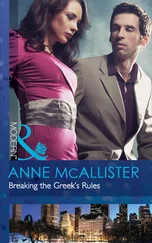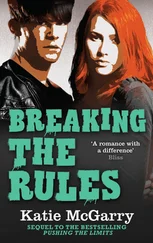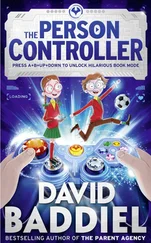A
A Serious Man , 1.1-1.2 , 2
T
The Shield , 1
S
Six Feet Under , 1 , 2
Slovis, Michael, 1
Son of the Beach , 1
Sontag, Susan See cancer as metaphor
T
The Sopranos , 1 , 2 , 3 , 4
S
spaghetti westerns See Leone, Sergio
Stagecoach , 1
Star Trek , 1
Sunday Morning Shootout , 1
T
teaser segment, 1 , 2.1-2.2 , 3.1-3.2
Thatcher administration, 1
Third Golden Age of TV, 1 , 2
Touch of Evil , 1
Traffic , 1
The Treasure of Sierra Madre , 1
Turkle, Sherry, 1 , 2 , 3
Twin Peaks , 1 , 2
U
Unscripted , 1
U.S.-Mexico border, 1 , 2 , 3 , 4 , 5.1-5.2 , 6 , 7 , 8 , 9
V
Variety , 1
Velez, Lupe, 1
Veronica Mars , 1
visual style in Breaking Bad , 1 , 2 , 3.1-3.2 , 4.1-4.2 , 5.1-5.2
orality, 1 , 2 , 3
second-degree style, 1 , 2.1-2.2 , 3.1-3.2 , 4.1-4.2 , 5
visuality, 1 , 2 , 3 , 4
zero-degree style, 1.1-1.2 , 2 , 3.1-3.2
T
The Voice , 1
The Walking Dead , 1 , 2
W
War on Drugs, 1 , 2
Weather Channel, 1
Weeds , 1
White, Skyler (series character), 1 , 2 , 3 , 4 , 5 , 6 , 7 , 8 , 9 , 10.1-10.2 , 11 , 12.1-12.2 , 13 , 14 , 15 , 16 , 17 , 18 , 19 , 20 , 21 , 22 , 23.1-23.2 , 24 , 25 , 26 , 27 , 28
confrontation with Walter, 1 , 2.1-2.2 , 3.1-3.2
her body, 1 , 2
White, Walter (series character) as antihero, 1 , 2
as entrepreneur, 1.1-1.2
his body, 1 , 2 , 3.1-3.2 , 4.1-4.2 , 5.1-5.2
as schoolteacher, 1 , 2.1-2.2 , 3 , 4 , 5.1-5.2
White, Walter Jr. (series character), 1 , 2 , 3 , 4 , 5 , 6.1-6.2 , 7 , 8.1-8.2 , 9 , 10 , 11
his body, 1 , 2
Winfrey, Oprah, 1
T
The Wire , 1 , 2 , 3.1-3.2 , 4
X
Xena: Warrior Princess , 1
T
The X-Files , 1 , 2 , 3
Y
Y tu mamá también , 1
LEXINGTON BOOKS
Lanham • Boulder • New York • Toronto • Plymouth, UK
Published by Lexington Books
A wholly owned subsidiary of Rowman & Littlefield
4501 Forbes Boulevard, Suite 200, Lanham, Maryland 20706
www.rowman.com
10 Thornbury Road, Plymouth PL6 7PP, United Kingdom
Copyright © 2014 by Lexington Books
All rights reserved.
No part of this book may be reproduced in any form or by any electronic or mechanical means, including information storage and retrieval systems, without written permission from the publisher, except by a reviewer who may quote passages in a review.
British Library Cataloguing in Publication Information Available
Library of Congress Cataloging-in-Publication Data
Breaking bad : critical essays on the contexts, politics, style, and reception of the television series / edited by David P. Pierson.
pages cm
Includes bibliographical references and index.
ISBN 978-0-7391-7924-6 (cloth) -- ISBN 978-0-7391-7925-3 (electronic)
1. Breaking bad (Television program : 2008- ) I. Pierson, David, 1958-
PN1992.77.B74B739 2012
791.45’72--dc23
2013030625
 TMThe paper used in this publication meets the minimum requirements of American National Standard for Information Sciences Permanence of Paper for Printed Library Materials, ANSI/NISO Z39.48-1992.
TMThe paper used in this publication meets the minimum requirements of American National Standard for Information Sciences Permanence of Paper for Printed Library Materials, ANSI/NISO Z39.48-1992.
Printed in the United States of America
In The Godfather (1972), Tom Hagen (Robert Duvall), the Don’s adopted son, serves as the consigliere or advisor to Don Vito Corleone (Marlon Brando), the head of the Corleone crime family. In Breaking Bad , Saul offers to be Walt’s personal advisor and counselor for his meth production and distribution business.
I’m referring to the popularity of gangsta rap, a subgenre of hip hop music, that focuses on urban crime and the violent lifestyle of inner-city youth and criminals, as well as the violent video games, such as the Grand Theft Auto series.
Jodi Dean says that, in the 1997 film The Game , the main character is a bored, successfully, but emotionally detached investment banker who only finds excitement and renewed desire through “the game” that is “an unpredictable, high-risk game in which the players don’t know the rules, the other players, the conditions, the limits, or even what determines a win or a loss.” She asserts that the game represents the brutalities of the neoliberal market and thereby, opens the players up to “the possibilities of desire that their successes had foreclosed” (Dean 58). In a similar manner, I argue that the criminal meth market allows Walt to rekindle his desires to succeed. These desires have laid dormant since Walt gave up the opportunity of pursuing a profitable career in research.
I am not arguing that neo-liberalism has specific gendered qualities, but rather that its focus on aggressive individualism and distrust of the social are traits normally associated with western masculinity. The institutional shift the welfare state to the neoliberal state can also be understood in gendered terms. Wacquant, in Punishing the Poor , states that, through the retrenchment of the charitable welfare state combined with strict penal laws and unparalleled growth in incarceration, the government’s helping hand has been replaced with the iron fist. He asserts that, through neoliberal policies and directives, the government is undergoing a process of re-masculination away from the paternalism associated with postwar liberalism.
The “Heisenberg” reference in Breaking Bad may refer to Werner Karl Heisenberg, a German theoretical physicist who made a foundational contribution to the founding of quantum mechanics and is best known for the uncertainty principle of quantum theory. In layman’s terms, the uncertainty principle asserts that the more precisely one property is measured, the less precisely another property will be to control, limit, and measure. In phenomenological terms, it means that human perception is always limited and incomplete. Walt’s choice of alias may serve as a reminder of the mutable and unknowable qualities of his character and actions. As with reality itself, the audience’s understanding of Walt’s character and motivations are limiting and restrictive by human perception.
Lyrics taken from Justsomelyrics.com from Mick Harvey’s song, “Out of Time Man.”
The episodes in which dead bodies are dissolved include “…And the Bag’s in the River” (2/10/08), “Box Cutter” (7/17/11), “Face Off” (10/9/11), “Dead Freight” (8/12/12), and “Gliding Over All” (9/2/12).
This occurs in the episode “Gray Matter” (2/24/08).
Walt’s comment occurs in the episode “… And the Bag’s in the River” (2/8/08).
This comment occurs in the episode “Peekaboo” (4/12/09).
This observation is made in the episode “Bit by a Dead Bee” (3/22/09).
Читать дальше
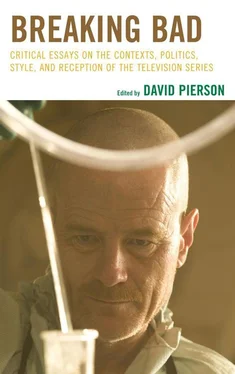
 TMThe paper used in this publication meets the minimum requirements of American National Standard for Information Sciences Permanence of Paper for Printed Library Materials, ANSI/NISO Z39.48-1992.
TMThe paper used in this publication meets the minimum requirements of American National Standard for Information Sciences Permanence of Paper for Printed Library Materials, ANSI/NISO Z39.48-1992.